I know the question has been asked before but none of the suggested resolutions are working for me so I'm going to ask it again and hopefully get new suggestions. Some of the articles I've read:
VS .Net References with yellow triangle Why do I get a warning icon when I add a reference to an MEF plugin project? The exclamation mark in the yellow triangle icon (inside Solution Explorer)
My 5 portable libraries are definitely all targeting the same frameworks (I've checked and re-checked as this was one of the suggestions!):
- .NET Framework 4.5
- ASP.NET Core 1.0
- Windows Phone 8
- Windows Phone 8.1
- Windows Phone Silverlight 8
- Xamarin.Android
- Xamarin.iOS
- Xamarin.iOS (classic)
What I've tried/done so far:
- Remove Nuget package references manually from all projects.
- Check each .csproj and made sure that the references were indeed removed.
- Delete the packages folder in the root of my solution
- Tried to re-installed all packages via the console manager. No error yet yellow triangle is still displayed.
- Tried to re-installed all packages via the Nuget manager. No error yet yellow triangle is still displayed.
Here is the section of one of my portable class library:
<ItemGroup>
<Reference Include="crypto">
<HintPath>..\..\..\packages\Portable.BouncyCastle.1.8.1\lib\portable-
net4+sl5+wp8+win8+wpa81+MonoTouch10+MonoAndroid10+xamarinmac20+xamarinios10
\crypto.dll
</HintPath>
<Private>True</Private>
</Reference>
<Reference Include="Newtonsoft.Json">
<HintPath>..\..\..\packages\Newtonsoft.Json.8.0.3\lib\portable-
net40+sl5+wp80+win8+wpa81\Newtonsoft.Json.dll
</HintPath>
<Private>True</Private>
</Reference>
<Reference Include="System.Net.Http">
<HintPath>..\..\..\packages\Microsoft.Net.Http.2.2.29\lib\portable-
net40+sl4+win8+wp71+wpa81\System.Net.Http.dll
</HintPath>
<Private>True</Private>
</Reference>
<Reference Include="System.Net.Http.Extensions">
<HintPath>..\..\..\packages\Microsoft.Net.Http.2.2.29\lib\portable-
net40+sl4+win8+wp71+wpa81\System.Net.Http.Extensions.dll
</HintPath>
<Private>True</Private>
</Reference>
<Reference Include="System.Net.Http.Primitives">
<HintPath>..\..\..\packages\Microsoft.Net.Http.2.2.29\lib\portable-
net40+sl4+win8+wp71+wpa81\System.Net.Http.Primitives.dll
</HintPath>
<Private>True</Private>
</Reference>
My physcial project path is:
C:\xxxx\xxxxxx\xxxxx-xxxxxxx
so taking bouncycastle as an example and based on the above, I assume the full path would look like this:
C:\xxxx\xxxxxx\xxxxx-xxxxxxx\packages\Portable.BouncyCastle.1.8.1\lib\portable-net4+sl5+wp8+win8+wpa81+MonoTouch10+MonoAndroid10+xamarinmac20+xamarinios10\crypto.dll
This seems to be a problem only on my portable libraries as I've re-install all the Nuget packages on my uwp solution and they all worked as expected. The frustrating part is that my project which is still located in it's original location is working perfectly well. I've uninstalled the packages and re-installed them and everything is 100% working as expected.
Has anyone got any other suggestions?
